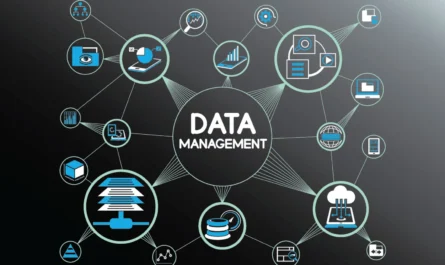What is it?
It refers to a cloud service model where machine learning models are developed, managed, and optimized by service providers then delivered to customers as an API or dashboard. With MLaaS, enterprises and organizations can leverage machine learning without having to build custom models or invest in expensive AI infrastructure and data scientists. MLaaS providers handle all aspects of model development, deployment, monitoring, retraining and hosting so customers can focus on their core business.
MLaaS Benefits for Businesses
MLaaS offers many benefits for businesses compared to developing machine learning capabilities in-house. First, it allows organizations of any size to benefit from machine learning without the high upfront investment. MLaaS providers have already spent millions building the necessary infrastructure, tooling, datasets and expertise required. Second, MLaaS handles ongoing maintenance, monitoring and retraining of models so they stay up-to-date with new data. Customers get continuous improvements without extra effort. Third, MLaaS providers can leverage economies of scale to develop more robust and specialized models compared to a single business. This improves prediction accuracy. Finally, MLaaS frees up internal resources to focus on strategic initiatives rather than AI infrastructure challenges.
Popular Use Cases for Machine Learning as a Service
There are many common ways organizations utilize Machine Learning As A Service (Mlaas) technologies. Computer vision APIs are leveraged for image recognition, tagging, moderation and more. Natural language processing APIs power chatbots, document classification and text analytics. Financial services utilize MLaaS for fraud detection, risk analysis and investment strategies. E-commerce uses it for product recommendations, price predictions and demand forecasting. Other popular applications include predictive maintenance, healthcare diagnostics, cybersecurity, supply chain optimization and marketing personalization. The wide range of pre-built and customizable machine learning APIs allow MLaaS to be applied across nearly every industry.
Key MLaaS Platforms and Providers
The MLaaS market features both established technology companies and startups focused exclusively on machine learning services. Some of the largest and most popular MLaaS providers include Google Cloud AI, Amazon Web Services (AWS), Microsoft Azure Machine Learning and IBM Watson Studio. These giants offer comprehensive suites of ML services, infrastructure and tools. Other prominent specialized MLaaS platforms include Anthropic, BigML, DataRobot, H2O.ai, Hyperopt, Kubeflow Pipelines, Predicthq, and Seldon. These companies offer particular expertise in model management, auto ML, deployment automation or specific algorithms like neural networks. Customers can choose from these platforms based on features, pricing models and industry specializations.
Challenges for MLaaS Vendors
While MLaaS has gained popularity, providers still face challenges in effectively delivering on the technology’s promise. One issue is data privacy/security concerns which discourage some businesses from moving sensitive ML workloads to external clouds. Efforts around data governance, encryption and anonymization help address this. Secondly, while auto ML techniques aim to simplify the process, large-scale model development still requires skilled data scientists and engineers. Attracting and retaining top talent remains competitive. Thirdly, as models gather more data over time, the risk and costs of model drift increase if they are not properly monitored and retrained. Ensuring continuous improvements requires ongoing investment. Finally, customers require transparency into how models function to trust their predictions, but interpreting complex AI remains difficult. MLaaS platforms work on solutions like model explanations.
Future Outlook for MLaaS Market
The machine learning as a service industry is projected to continue its strong growth in the coming years, achieving a global market size of over $6 billion by 2025 according to some estimates. As ML techniques advance, so do capabilities for MLaaS platforms. Areas like federated learning, transfer learning and model compression help enable new specialized and privacy-focused ML applications. Edge deployment of ML microservices and the rise of personal digital assistants also create demand for low-latency, embedded ML APIs. While challenges remain, MLaaS lowers the barrier for all organizations to leverage artificial intelligence. As the technology matures, MLaaS providers aim to make machine learning as simple and ubiquitous a service as possible.
In summary, machine learning as a service has become an important cloud service model for delivering artificial intelligence capabilities to businesses. By removing the infrastructure complexities, MLaaS allows organizations of any size to utilize pre-built machine learning APIs and predictive models for tasks like computer vision, natural language processing and more. Leading technology companies as well as specialized MLaaS platforms will continue expanding their offerings and client bases, driving the industry towards making AI truly accessible to all.
*Note:
1.Source: Coherent Market Insights, Public sources, Desk research
2.We have leveraged AI tools to mine information and compile it



